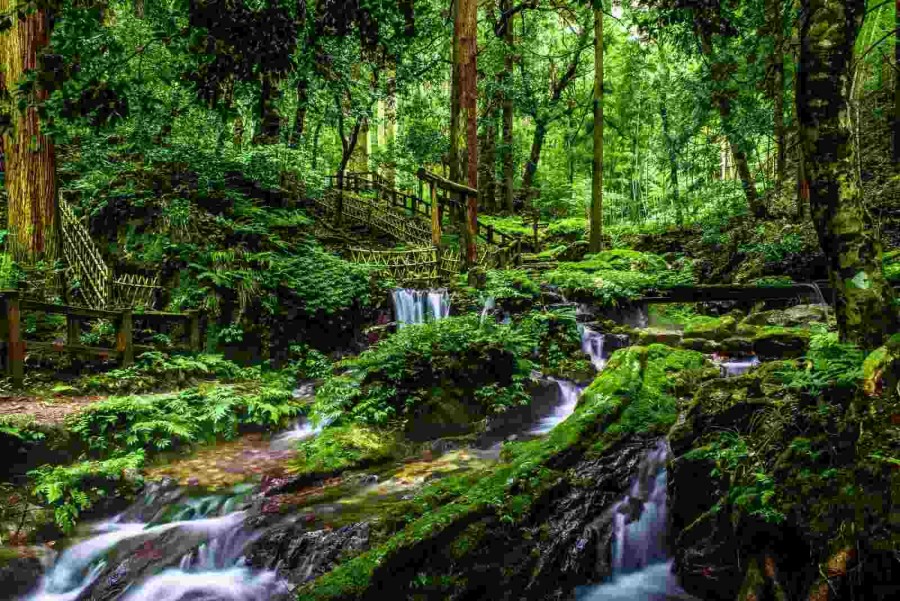Journey through Fukui with new English guide for international visitors

Fukui Prefecture has just released a new multilingual leaflet available in English, Traditional Chinese, and Simplified Chinese, making it easier than ever for people living in Japan and tourists to explore this hidden gem. With the recent extension of the Hokuriku Shinkansen, you can reach Fukui in about three hours, offering a smooth and quick connection to one of Japan's most captivating regions.
The prefecture offers an ideal escape with its blend of natural beauty, rich history, and cultural experiences. From the dramatic Tojinbo Cliffs and quiet Eiheiji Temple to Japan’s best dinosaur destination, Fukui is perfect for nature lovers, history enthusiasts and anyone seeking a peaceful retreat from the typical tourist hotspots.
Step Back in Time at the Fukui Prefectural Dinosaur Museum
Unique to Fukui, species like the Fukuiraptor and Fukuisaurus have cemented the region’s place as Japan's "Dinosaur Kingdom." Remarkably, roughly 80% of all dinosaur fossils discovered nationwide have been unearthed in Fukui, making it a cradle of paleontological discovery. But here, dinosaurs are more than just ancient remnants—they’re a vital part of the local identity, celebrated in everything from animatronic dinosaurs to festivals.
As you explore the museum, you’ll be greeted by over 40 full-scale dinosaur skeletons, including the colossal Camarasaurus, with more than 90% of its original fossils intact. This isn’t just a display — a vivid reconstruction of a world millions of years in the making. Whether you’re watching paleontologists bring fossils to life in the lab or unearthing your own discoveries at the museum’s excavation site, you’ll find yourself captivated by the thrill of stepping into the ancient past.
Find Inner Peace at Eiheiji Temple
For those who appreciate nature’s raw beauty, the Tojinbo Cliffs offer an unforgettable experience. Stretching over a kilometer along the Sea of Japan, these dramatic cliffs were shaped by volcanic activity millions of years ago. The sheer drops and powerful waves below create a striking landscape.
As the sun sets, the cliffs provide an even more stunning view, with sunset colors reflecting off the sea. It’s a place where you can really sense the power of nature while taking in the expansive ocean views.
A New Look At The Megane Museum
A visit to Fukui wouldn’t be complete without exploring the Megane Museum in Sabae City. The museum highlights the prefecture’s status as Japan’s eyewear capital. Producing over 90% of Japan’s eyeglass frames, Sabae is at the heart of the eyewear industry, and the museum offers a fascinating glimpse into this craftsmanship.
Visitors can learn about the intricate process of frame-making, from design to production, and even try their hand at creating frames and other crafts. The museum showcases eyewear technology and design evolution, blending traditional methods with modern innovations. Whether or not you wear glasses, the Megane Museum offers a fresh lens through which to view the art and science of eyewear.
Unearth Spirituality at Kehi Jingu Shrine
After delving into Fukui’s natural wonders, visiting Kehi Jingu Shrine offers a spiritual journey into the heart of the region’s Shinto traditions. As you pass through one of Japan’s largest torii gates, you’ll be welcomed by the tranquil surroundings of this ancient shrine. Centuries-old trees tower like silent guardians, enriching the shrine’s aura of reverence and peace.
Kehi Jingu Shrine, dedicated to the sea deity who has long protected the region’s seafarers, invites you to partake in traditional Shinto rituals or simply soak in the serene environment. This shrine is not just a place of worship but a living testament to Fukui’s deep spiritual roots.
